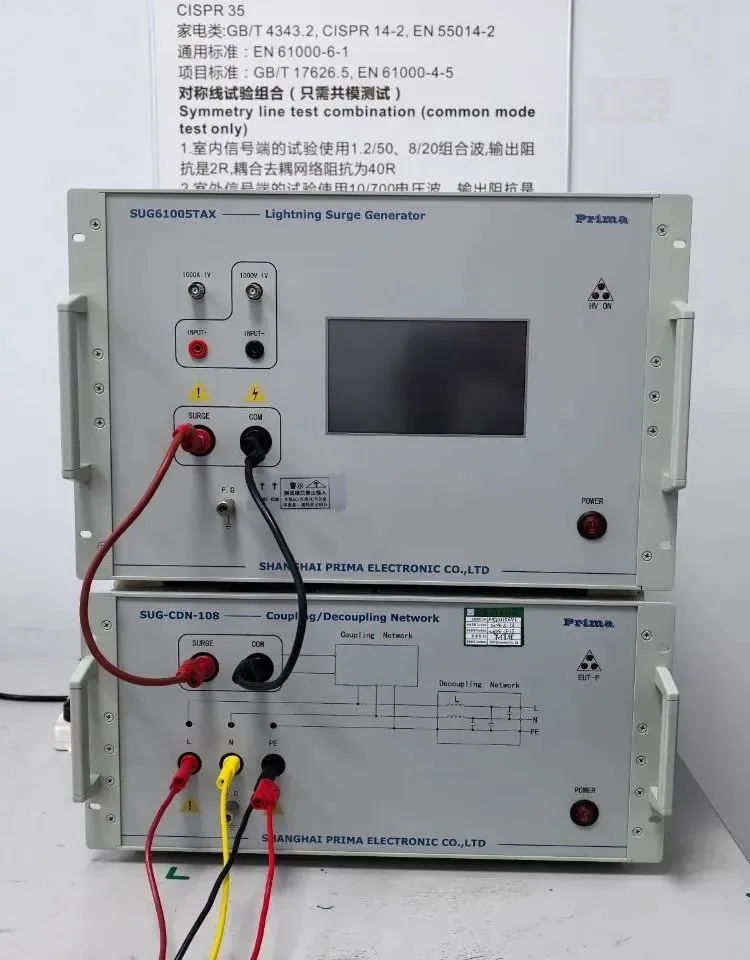
What Certifications Are Required for Exporting Heaters to Europe?
EU Heater Safety Requirements
With heaters becoming increasingly popULar in the European market, many businesses eager to enter the market may not be aware of the certification and compliance requirements for household heating appliances in the EU. Below, JJR Lab from China has compiled the relevant requirements to help companies prepare for product exports.
CE certification
1.1 Definition of CE Certification
CE certification is a mandatory certification for products exported to EU countries. It acts as a "passport" for manufacturers to enter the European market. The CE mark is a mandatory certification symbol in the EU market. Whether the product is produced within the EU or outside, it must bear the CE mark to indicate that the product meets the essential requirements of the EU’s "New Approach" directives for technical coordination and standardization.
1.2 Common CE Certification Standards for Heaters
EMC Section:
- EN IEC 55014-1: Electromagnetic Compatibility (EMC) Requirements for Household Appliances, Electric Tools, and Similar Equipment – Part 1: Emission
- EN IEC 55014-2: EMC Requirements for Household Appliances, Electric Tools, and Similar Equipment – Part 2: Immunity
LVD Section:
- EN 60335-1: Safety of Household and Similar Electrical Appliances – Part 1: General Requirements
- EN 62233: Measurement Methods for Human Exposure to Electromagnetic Fields from Household and Similar Appliances
Specific Heater Product Standards:
- Electric Heaters/Heaters: EN 60335-2-30: Safety of Household and Similar Electrical Appliances – Part 2-30: Special Requirements for Indoor Heaters
- Liquid Heaters: EN 60335-2-15: Safety of Household and Similar Electrical Appliances – Part 2-15: Special Requirements for Liquid Heating Appliances
- Electric Blankets: EN 60335-2-17: Safety of Household and Similar Electrical Appliances – Part 2-17: Special Requirements for Blankets, Mats, Clothing, and Similar Flexible Heating Devices
1.3 CE Certification Materials
Provide product samples, user manuals, electronic labels, and complete application forms.
1.4 CE Certification Cycle
Once samples are received, testing usually takes 1-2 weeks to produce a report.
ROHS Testing
2.1 Definition of RoHS
RoHS (Restriction of Hazardous Substances) is a mandatory standard legislated by the European Union. It regulates the use of certain hazardous substances in electrical and electronic equipment. The initial version came into effect on July 1, 2006, and the current directive is 2011/65/EU.
RoHS, also known as environmental certification, aims to regulate materials and manufacturing processes for electrical and electronic products to protect human health and the environment. It limits the use of hazardous substances such as lead, mercury, cadmium, hexavalent chromium, polybrominated biphenyls (PBB), polybrominated diphenyl ethers (PBDEs), and phthalates.
2.2 rohs testing Standards
Testing Standard: IEC 62321
Limit Values:
- Lead (Pb): <1000 ppm
- Mercury (Hg): <1000 ppm
- Cadmium (Cd): <100 ppm
- Hexavalent Chromium (Cr VI): <1000 ppm
- Polybrominated Biphenyls (PBB): <1000 ppm
- Polybrominated Diphenyl Ethers (PBDE): <1000 ppm
- Di(2-ethylhexyl) Phthalate (DEHP): <1000 ppm
- Benzyl Butyl Phthalate (BBP): <1000 ppm
- Dibutyl Phthalate (DBP): <1000 ppm
- Diisobutyl Phthalate (DIBP): <1000 ppm
Testing Directive: 2011/65/EU & (EC) 2015/863
2.3 RoHS Testing Materials
RoHS is a chemical test that requires providing samples for disassembly and testing, along with a completed application form. No additional materials are required.
2.4 RoHS Testing Cycle
Once samples are received and testing is completed without issues, a report is generally provided within 5 working days.
reach testing
3.1 Definition of REACH
REACH (Registration, Evaluation, Authorization, and Restriction of Chemicals) aims to address the production, use, and potential impact of chemicals on human health and the environment. It is a regulation implemented by the EU on June 1, 2007, to manage the risks of chemicals entering the EU market.
REACH requires that all chemicals imported into or produced within the EU must be registered, evaluated, authorized, and restricted to ensure safety for both the environment and human health. The regulation covers registration, evaluation, authorization, and restriction of chemicals.
3.2 REACH Testing Standards
Testing Standard: No. 1907/2006
Restriction Requirements: Restrictions on harmful substances and substances of very high concern listed in the authorization list.
3.3 REACH Testing Materials
REACH is a chemical test that requires providing samples and completing the application form. No additional materials are required.
3.4 REACH Testing Cycle
Once samples are received and testing is completed without issues, a report is generally provided within 5 working days.
JJR Lab Reminder
The above outlines the certification and testing requirements for exporting heaters and other heating products to Europe. Additionally, some individual countries may have other certification requirements, such as Germany's gs certification and the UK's ukca mark.
When preparing large stocks, sellers must ensure their products pass relevant safety tests and certifications to avoid unnecessary losses. For more information on testing and certification, feel free to consult the staff at JJR Lab in China for assistance.
Email:hello@jjrlab.com
Write your message here and send it to us
 Tiny Toys Bus Pass ASTM F963
Tiny Toys Bus Pass ASTM F963
 ASTM-F963-17 Non-Ride-On Toys Testing
ASTM-F963-17 Non-Ride-On Toys Testing
 Amazon ASTM F963 Pacifier Compliance Testing
Amazon ASTM F963 Pacifier Compliance Testing
 RCM AS/NZS CISPR 32:2023 Testing for Power Adapte
RCM AS/NZS CISPR 32:2023 Testing for Power Adapte
 How to get Australia SAA Compliance?
How to get Australia SAA Compliance?
 Does Canada Require RoHS Compliance
Does Canada Require RoHS Compliance
 EU CE LVD, EMC, RoHS Directives Compliance Guide
EU CE LVD, EMC, RoHS Directives Compliance Guide
 Quick Guide to the CE-LVD Low Voltage Directive
Quick Guide to the CE-LVD Low Voltage Directive
Leave us a message
24-hour online customer service at any time to respond, so that you worry!




